Certain limitations do apply, please call for more details.
For Service Now, Call Us Right Now!
- HVAC Contractor
- HVAC Repair
- HVAC Installation
- Furnace Repair
- Furnace Installation
- Heat Pump Repair
- Heat Pump Installation
- Central Heating Repair
- Central Heating Installation
- Heating and Cooling Repair
- Heating and Cooling Installation
- Air Conditioner Repair
- Air Conditioning Installation
- Air Duct Cleaning Services
- Ductless Heating and AC Services
- Install AC
- Install Ducts and Vents
- Install Heating System
- Install Thermostat
- AC Maintenance
- Heating Maintenance
- HVAC Maintenance
- Repair AC
- Repair Ducts and Vents
- Repair Heating System
- Repair HVAC
- Repair Thermostat
- Clean Ducts and Vents
off

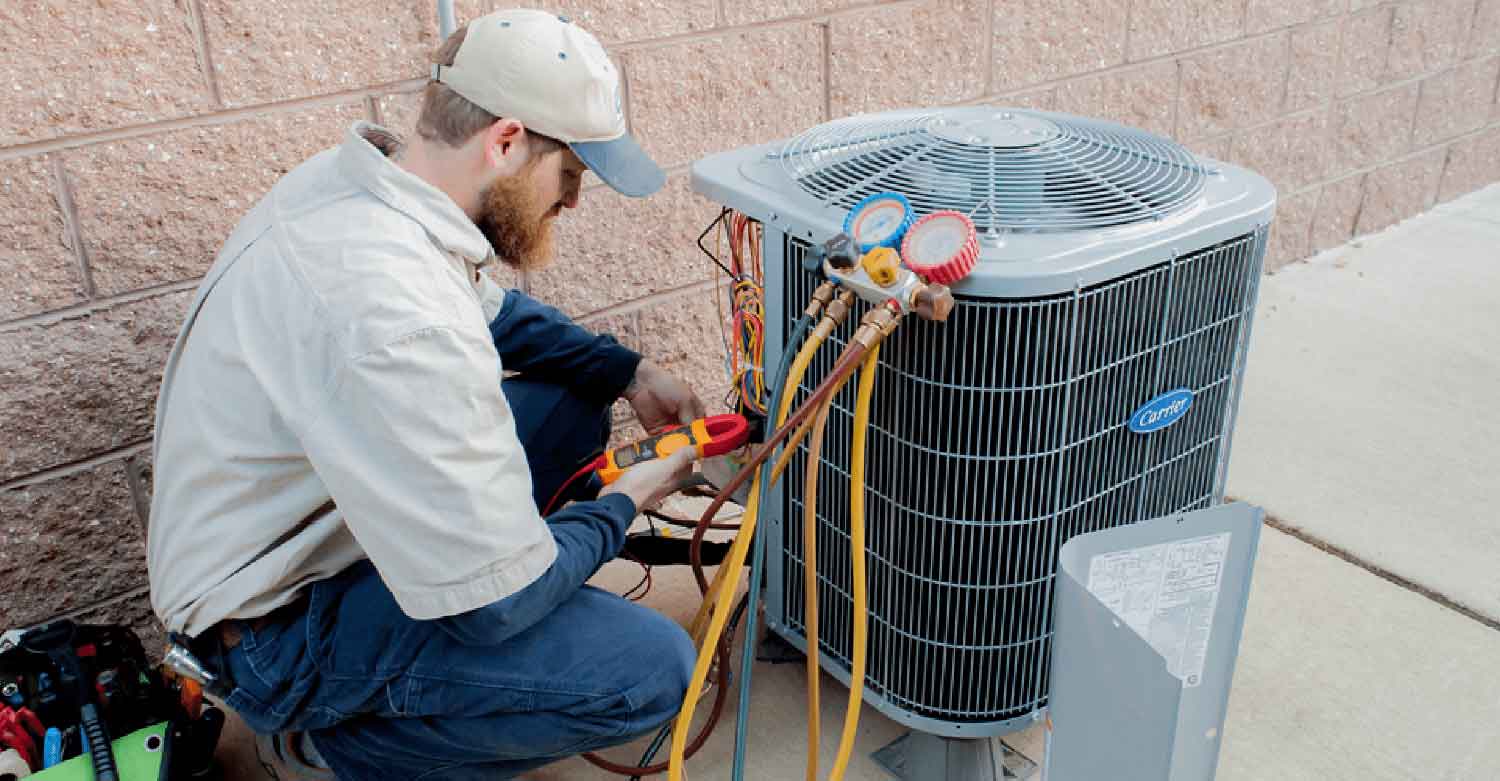
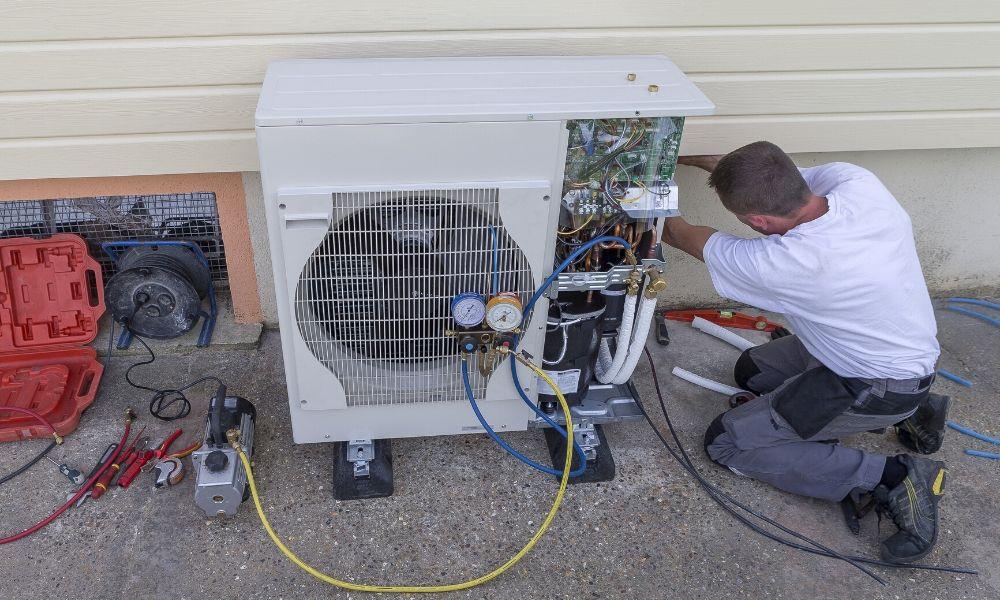
HVAC Repair Tigard Oregon: When to Do It Yourself and When to Call a Professional
If your HVAC system fails or fails to function properly it can be difficult and uncomfortable. A lot of homeowners living in Beaverton, Oregon often wonder whether they should try to resolve the issue on their own or contact an experienced HVAC repair service. Although DIY HVAC repair could help you save money, you must be aware of when you should take on the problem yourself and when you should call the experts. We'll talk about the advantages and disadvantages for doing your own HVAC repair and give advice on when to service contact professionals.
Pros and Cons of DIY HVAC Repair
Before you make the decision to tackle HVAC repairs by yourself It is important to consider the advantages and disadvantages in self-help HVAC repair.
Pros of DIY HVAC Repair
-
Saving money: Perhaps the main benefit to DIY HVAC repair is cost savings. You don't need to hire an expert HVAC technician to find and repair the issue that could help you save hundreds.
-
The convenience of DIY HVAC repair allows you to address the problem according to your own schedule instead of waiting for an expert to arrive. In addition, you don't need to leave to work or re-arrange plans to fit in the arrival of an HVAC technician.
-
Experience learning: Trying the task of trying to repair the problem with your HVAC system by yourself is an excellent experience for learning. You'll get a better understanding of the way your system operates and how to keep it in good working order.
Cons of DIY HVAC Repair
-
Security concerns: HVAC systems are complex and can be risky. Doing it yourself repair or repair the system yourself could result in injuries or harm in your system.
-
Inexperience HVAC systems are complicated and, if you don't have experience working with HVAC equipment, you might not be able to identify and fix the issue.
-
Warranty void: Trying yourself to repair or repair your HVAC system by yourself can invalidate the manufacturer's warranty. If something goes wrong you'll be accountable for the cost repair.
When to Do It Yourself
While there are numerous advantages of contacting a professional HVAC repair technician, there's some instances where you may be able to do yourself at DIY repair. Here are a few instances:
-
Air filter replacement Replacement of the HVAC equipment's air filter is a straightforward job that can be completed by the majority of homeowners. A dirty or blocked air filter could make your system to run more hard and result in more energy costs and an increase in wear and wear and tear for your system.
-
Thermostat replacement When your heating and cooling system does not appear to be heating or cooling appropriately, it could be due to a malfunctioning thermostat. The replacement of a thermostat is an easy task majority of homeowners can manage.
-
Circuit Reset of the breaker In the event that you're HVAC system isn't functioning in any way, it could be because of a tripped circuit breaker. Before calling a professional attempt to reset the circuit breaker and determine if it resolves the issue.
When to Call a Professional
Although DIY HVAC repair is tempting however, there are certain circumstances when it's better to call for a professional HVAC technician. Here are some examples:
-
Refrigerant leaks: If you notice that your HVAC system is not getting enough refrigerant, it could be because of leaks. Leaks of refrigerant can be hazardous and should be dealt with by a qualified professional.
-
Electrical problems: HVAC systems are powered by electricity, and trying to repair electrical problems yourself could be risky. If you suspect that there is an electrical problem, service call a professional.
-
Complex problems When you are unable to pinpoint the cause of the problem and the cause appears complex, it's recommended to seek out an expert. If you attempt to resolve a complicated problem yourself can cause more harm the system or even create dangers to your safety.
-
Odors or strange noises If your HVAC system is making odd sounds or emitting strange odors It could indicate an issue of serious concern. The problem should be dealt with by a trained HVAC technician to make sure your system can be used safely.
-
Regular maintenance: While certain HVAC maintenance tasks are able to be completed by homeowners however, it's essential to ensure that your system regularly checked by an expert. A skilled HVAC technician will be able to spot problems before they develop into major issues, making sure that your system operates well and smoothly.
The Importance of Regular HVAC Maintenance to Avoid Costly Repairs
If you're a homeowner living of Beaverton, Oregon, it's crucial to look after your HVAC unit to ensure that it operates efficiently and efficiently. Regular maintenance is essential to avoid costly repairs and make sure that your system lasts for many years to remain. We'll go over the importance of maintaining your HVAC regularly as well as the advantages it can bring.
What is HVAC Maintenance?
HVAC maintenance includes frequent inspections, maintenance and repairs to ensure that your system is working efficiently. This can include tasks like replacing air filter, washing the coils and fans, examining air pipes and checking the refrigerant levels.
Regular maintenance is also about identifying problems that could be causing serious issues, and ensuring that your system is running well and smoothly.
The Benefits of Regular HVAC Maintenance
-
Longer life span of your HVAC system Regular maintenance will prolong the life of the HVAC system. If you can identify potential problems in the early stages, you can keep them from developing into significant issues that could cause expensive repairs or system failure.
-
Increased energy efficiency Regular maintenance will also enhance your energy effectiveness of the HVAC unit. If your HVAC unit is maintained properly, the system requires less energy to operate, decreasing your energy bill and also saving cash in the long-run.
-
Improved indoor air quality Regular maintenance can enhance the quality of air inside your home by making sure the HVAC system is in good working order and operating correctly. This is crucial for people who suffer from allergies or respiratory problems.
-
Cost savings Maintenance can help you save money by preventing major problems that may require costly repairs or system replacement. It's cheaper to keep your system rather than replacing it completely.
How Often Should You Schedule HVAC Maintenance?
It is recommended to plan HVAC maintenance at least once a year. If you own an older system or reside in an area that has extreme weather it is recommended to schedule maintenance two times every year.
Regular maintenance will help you to identify issues that could develop into major issues, and ensure that your system is running well and smoothly.
DIY HVAC Maintenance in comparison to. Professional HVAC Maintenance
Although some HVAC maintenance tasks are able to be completed by homeowners like replacing air filter or cleaning the coils, it's essential to ensure that your system regularly checked by a qualified HVAC technician.
Professional technicians are equipped with the knowledge and skills to recognize problems that could be causing issues and then make repairs to ensure that your system operates seamlessly and effectively.
The need for regular HVAC maintenance is crucial for homeowners who live in Beaverton, Oregon to avoid costly repairs and to make sure the system will last for many long time to come.
By planning regular maintenance and working with an experienced HVAC contractor, you'll be able to enhance efficiency and energy performance of the system and enhance indoor air quality and reduce your expenses over the long term.
Do not wait until you've had an issue of major importance to take care of your HVAC units. Schedule regular maintenance today.
Tips for Saving Money on HVAC Repairs and Maintenance
If you're a homeowner in Beaverton, Oregon, keeping your HVAC system operating at a high level is vital to your well-being and comfort. But, HVAC repairs and maintenance are costly. We'll talk about the best ways to save cash on HVAC maintenance and repairs, without sacrificing the level of service.
Schedule Regular Maintenance
One of the most effective methods to cut costs in HVAC maintenance is to plan regular maintenance for your system. If you have an expert HVAC technicians look over as well as service your system regularly to identify and address issues prior to them becoming critical issues that require costly repairs. This will also increase the effectiveness of your system and lower your energy costs.
Change Your Filters Regularly
The process of changing your HVAC filters regularly is one of the most simple and cost-effective methods to keep your system. Filter wear could make your system to perform more work than it should, which could result in breakdowns and increased energy costs.
If you change your filters frequently to improve the effectiveness that you get from your system and prolong its life.
Consider a Maintenance Plan
A lot of HVAC firms provide maintenance plans to assist you in saving money on maintenance and repairs. These plans typically include routine inspections and tune-upsas well as discounts on repairs and priority service.
If you sign up for maintenance programs and you'll be able to make sure it is your system is maintained without spending a fortune.
Don't Delay Repairs
If you spot a problem regarding your HVAC system It's crucial to fix it as quickly as you can. In the event of delaying repairs, it could lead to more serious problems that need costly repairs or system replacement. If you address issues quickly it will prevent any further damage and save money over the long term.
Do Your Research
When it concerns HVAC maintenance and repairs it is crucial to do your homework and locate trustworthy, knowledgeable HVAC technicians. Choose a firm that has a great reputation, a positive review from its customers as well as reasonable pricing.
Don't be afraid of asking for references or verify the credentials of the company prior to hiring them.
H2: Consider Energy-Efficient Upgrades
Upgrade to an energy efficient HVAC system will help you save costs on repairs and energy costs. These systems are designed to consume less energy which will lower your monthly expenses and ease the load upon your system. They can also come with warranties or guarantees that will reduce the cost of repairs over the long term.
Inspecting and maintaining an HVAC system is vital to your well-being and comfort as resident of Beaverton, Oregon. By planning regular maintenance, changing your filters on a regular basis, thinking about an annual maintenance plan, taking care to address repair issues promptly, doing your researchand evaluating the most energy efficient upgrades, you will save cash on HVAC repair and upkeep without compromising your quality service.
Don't delay until you encounter an issue of major importance now to ensure that the HVAC system in good order.
FAQ
Q Can I upgrade my heating and cooling system?
A: No. The replacement of the HVAC system is an complicated job that should be carried out by a qualified HVAC technician. In the event that you try to replace your HVAC system could cause dangers to your safety or damage to your home.
Q Do I need to be cautious when I try an DIY heating and air conditioning repair?
A: It is contingent upon the problem. Certain HVAC repairs, like air filter replacement or thermostat replacement are quite easy and can be completed without danger by the majority of homeowners. However, trying to solve more complicated problems or those that involve electrical components could be risky and should be done by a trained professional.
Q What is the best frequency to maintain my HVAC equipment checked?
A: It is recommended to have the HVAC system checked at minimum one time every year. Regular maintenance will help you identify problems that could be causing major issues, as well as ensure that your system operates smoothly and efficiently.
Conclusion
DIY HVAC repair is an excellent method to save money as well as get a better understanding of the way your HVAC system functions. It's crucial to be aware of when you can attempt repairs yourself and when you should service seek out an expert.
If you're not sure about the cause of the issue, or if the problem is complicated it's recommended to contact an expert HVAC technician. Regular maintenance performed by a qualified technician is crucial in order to make sure that the system is running smoothly and efficiently. If you follow these guidelines to ensure that your HVAC system functioning efficiently and save yourself from costly repairs in the near future.
[geocentric_weather id="8bc31280-b571-4bb4-8612-bcaf98ed49c0"] [geocentric_about id="8bc31280-b571-4bb4-8612-bcaf98ed49c0"] [geocentric_neighborhoods id="8bc31280-b571-4bb4-8612-bcaf98ed49c0"] [geocentric_thingstodo id="8bc31280-b571-4bb4-8612-bcaf98ed49c0"] [geocentric_busstops id="8bc31280-b571-4bb4-8612-bcaf98ed49c0"] [geocentric_mapembed id="8bc31280-b571-4bb4-8612-bcaf98ed49c0"] [geocentric_drivingdirections id="8bc31280-b571-4bb4-8612-bcaf98ed49c0"] [geocentric_reviews id="8bc31280-b571-4bb4-8612-bcaf98ed49c0"]Key Benefits
Our approach has been simple. Provide a competitive price using qualified HVAC technicians with no hidden fees, backed by a 100% guarantee on workmanship. Our HVAC contractors are available now for any heating and cooling repairs or installation services for your home or business.
Professional Team
Factory Trained Technicians: We only employ factory trained technicians, they’re the best in the industry. Your work will be done right the first time.
Work done on Time
With over 25 years of experience in the industry, we boast all of the knowledge and expertise needed to handle even your most stubborn HVAC issues.
24/7 Emergency Service
We have technicians available for all heating and cooling jobs and we are available 24/7
Award Winning Firm
We are dedicated to the pursuit of excellence and the demonstration of high professional standards.
More Information
When Would You Use an HVAC Contractor?
When would you use an HVAC contractor? Choosing the cheapest bidder can be tempting, but it can also cause more problems in the long run. Unlike licensed and insured companies, lower-cost contractors may not have the necessary experience or knowledge to provide the best service. If you are not sure whether a contractor is reputable, read online reviews to find out. There are many ways to find a reliable and honest HVAC contractor. The best time to hire a HVAC contractor is before you need repairs. If you have an emergency, you can call a professional who can do emergency repairs and maintain your HVAC system. Alternatively, a licensed company can take care of routine maintenance. If you need a large, expensive HVAC system, it is best to hire a licensed contractor. This will ensure that your system will function properly and save you money in the long run. After an HVAC contractor installs your HVAC system, it's important to get a follow-up inspection. You can have your system checked as soon as the installation is complete. You should also check the company's license and permit. Hiring an unlicensed company can cost you your investment and safety. In addition to this, you don't want to hire an HVAC contractor who isn't licensed in your area.
What Does an HVAC Installers Do?
If you are interested in air conditioning and heating systems, then you should consider becoming an HVAC installer. The work of an HVAC installer is quite diverse. They not only install air conditioning systems, but also repair them. They also conduct routine maintenance, including checking electrical circuits and pipe joints for continuity. They may also provide installation services, such as replacing ductwork or adjusting thermostats. Many people are interested in this line of work, but what exactly does an HVAC installer do? HVAC installers do many things, but their primary responsibilities are in the installation of heating and air conditioning systems. They design and fabricate ductwork, wire indoor units, and perform start-ups for air conditioning systems. They also work with hazardous materials, such as refrigerants, and must have critical thinking skills. Most employers outline minimum physical requirements for candidates, which include being able to climb, balance, and crawl. The work of an HVAC installer is varied, but there are some common tasks that are expected of them. They must work with heating and cooling systems and must have mechanical aptitude. For instance, they must be able to climb and balance. They must also be physically fit to perform their duties safely. A high school education is not necessary for this career, though it is preferred. A trade school is not necessary. You can begin training on the job if you have a desire to become an HVAC installer.
What is the Difference Between HVAC Installer and Technician?
If you're curious about the differences between HVAC installers and technicians, keep reading. The difference is not so big - in fact, the two roles are almost identical. While an HVAC technician will be responsible for servicing and maintaining existing HVAC systems, an installation is more involved and will involve a unique plan. An installation can take several days and can require many hours of work. An installer's schedule is flexible and they may be available around the clock, but they won't be as busy as an HVAC technician. An HVAC technician is typically responsible for installing and assembling ductwork. They will cut sheet metal and connect it to the HVAC unit. They will also mount the ductwork within a building. Some technicians will also install registers or other accessories. They may also work with the installation of a heating system. A technician can do all of these jobs. Depending on the job, an installation may be a major project. An HVAC technician is a person who installs heating and cooling systems. They are responsible for the installation of outdoor units and coils. They are also responsible for repairing compressors and refrigerants. In addition to installing and maintaining equipment, they can perform preventative maintenance to ensure that the HVAC system is functioning properly. They must also be detail-oriented and able to communicate with their team members and customers.
What Should an HVAC Estimate Include?
An HVAC estimate is a crucial part of the process. It helps you decide whether to hire a contractor for your project. It should be written according to your specifications, including the size of your house, ceiling heights, and number of windows. A well-written estimate should include the costs of permits, equipment, and labor. It should also detail any additional requirements you have. A properly written estimate can distinguish your business from the competition and strengthen your relationship with your customers. A proper HVAC estimate will include all direct and indirect costs, as well as taxes and permits. In addition to the cost of the system itself, it should include the cost of all supplies, labor, and materials. The goal of an estimate is to fully detail all costs related to the project, as well as the performance criteria. You can perform an estimate that is semi-detailed or conceptual. In either case, there are certain steps that you must follow to achieve a successful result. The first step to creating a good estimate is to identify the scope of your project. Determine the goals of the project and how much you can spend on the various components. Consider the HVAC zoning and comfort requirements. Keep in mind that you can get government rebates and grants if you choose to make your project energy-efficient. Finally, make sure your HVAC contractor includes everything you need. And remember, no matter how much it costs, you can always change your mind and ask for a lower price!
Where are your service locations?
Award winning work
Expert, guaranteed workmanship. Warranty on Parts & Labor
We are accountable to each other and the community we have sworn to serve. We are dedicated to the pursuit of excellence and the demonstration of high professional standards.

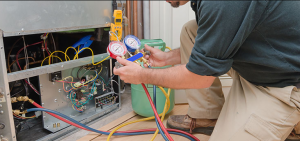
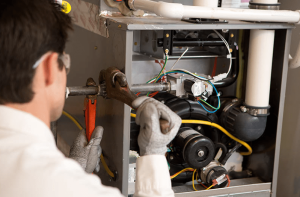
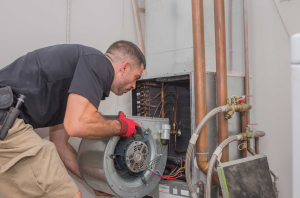
Enter Google site embed here

